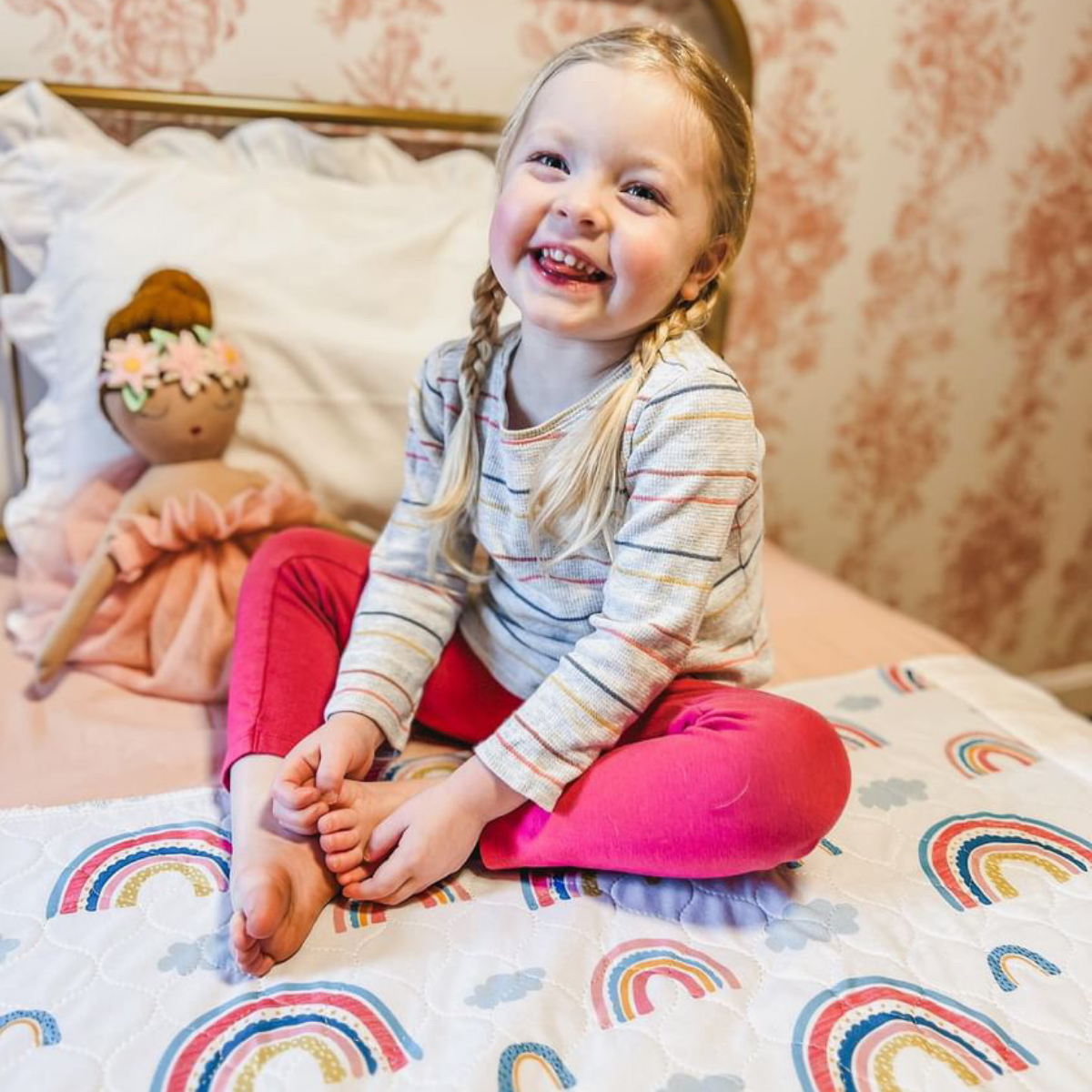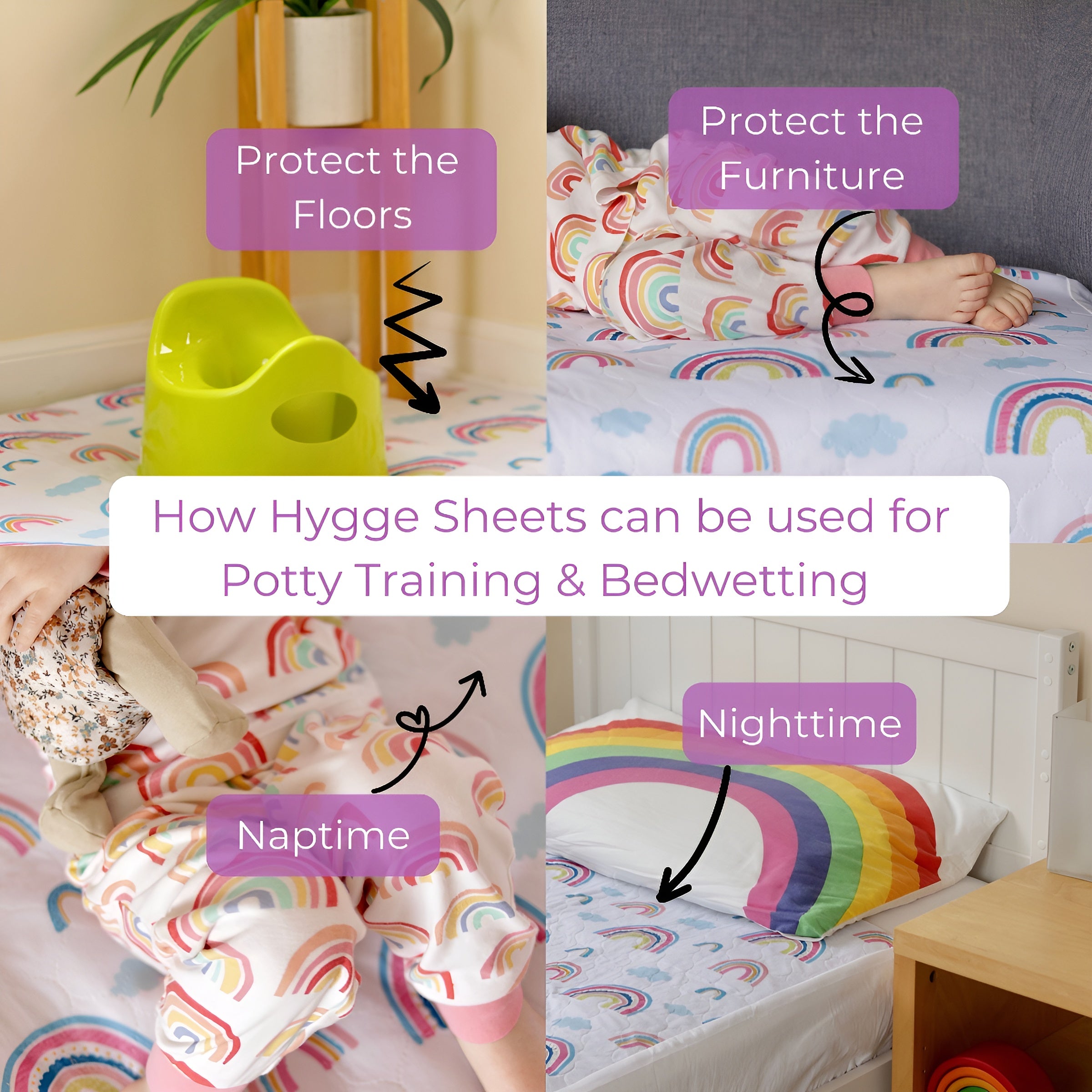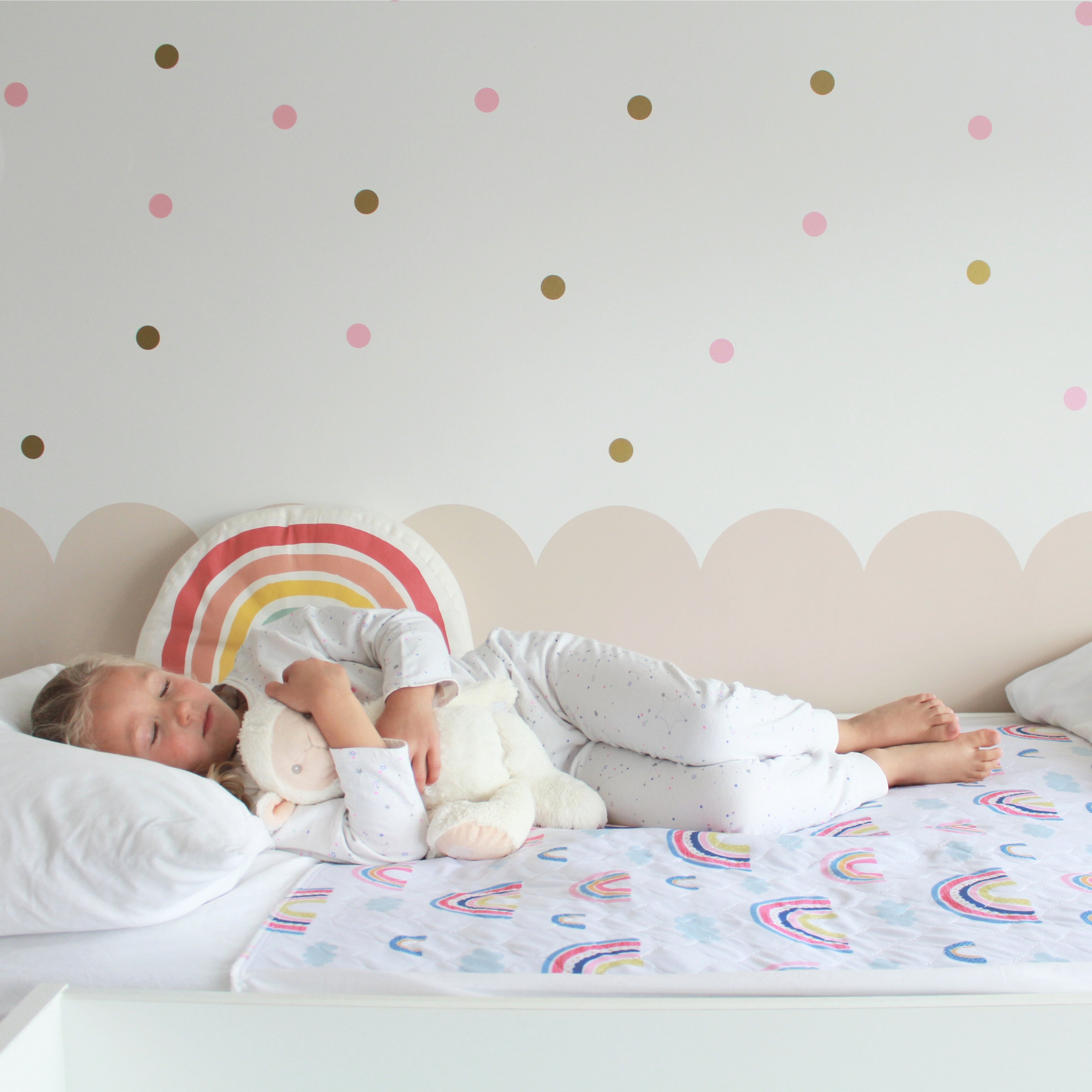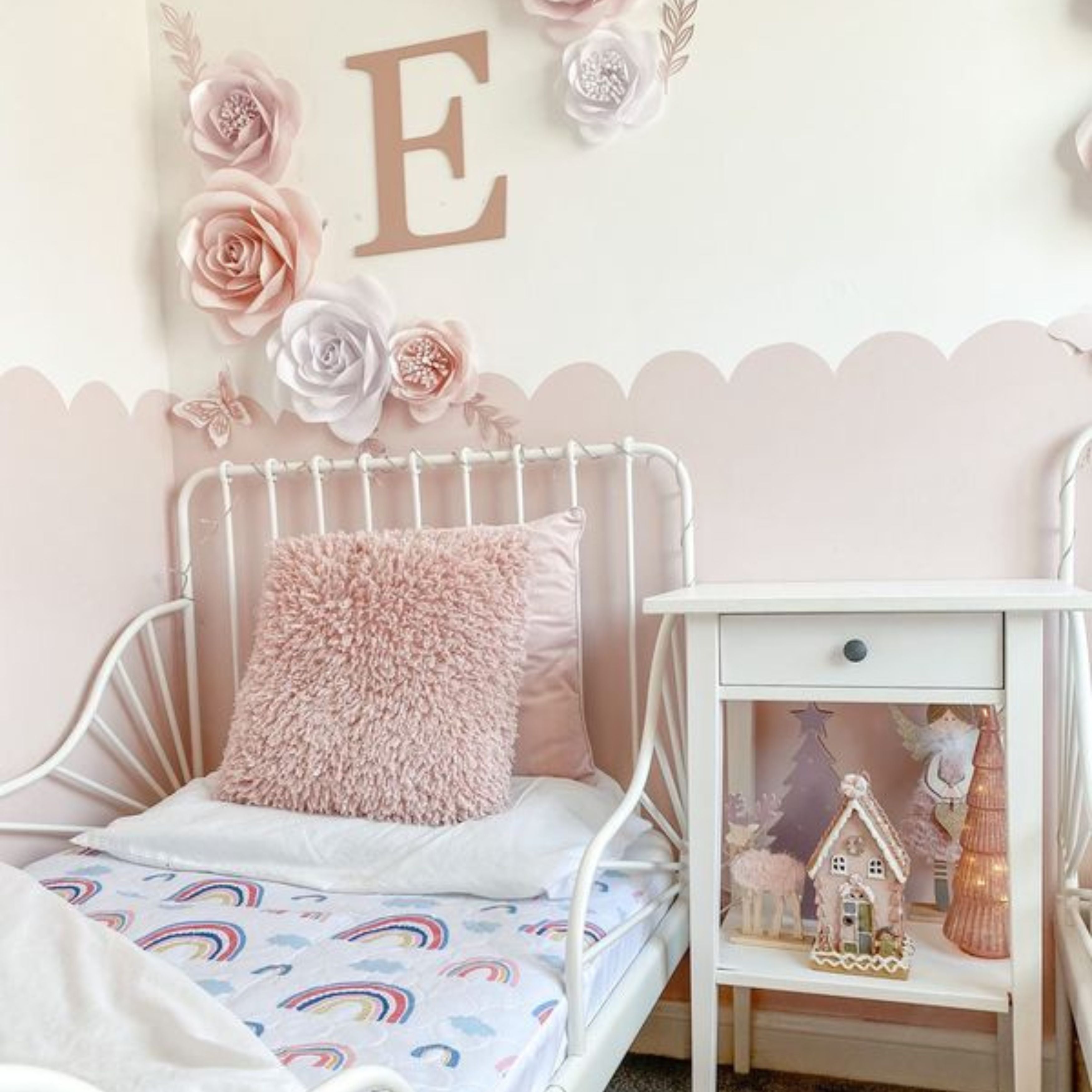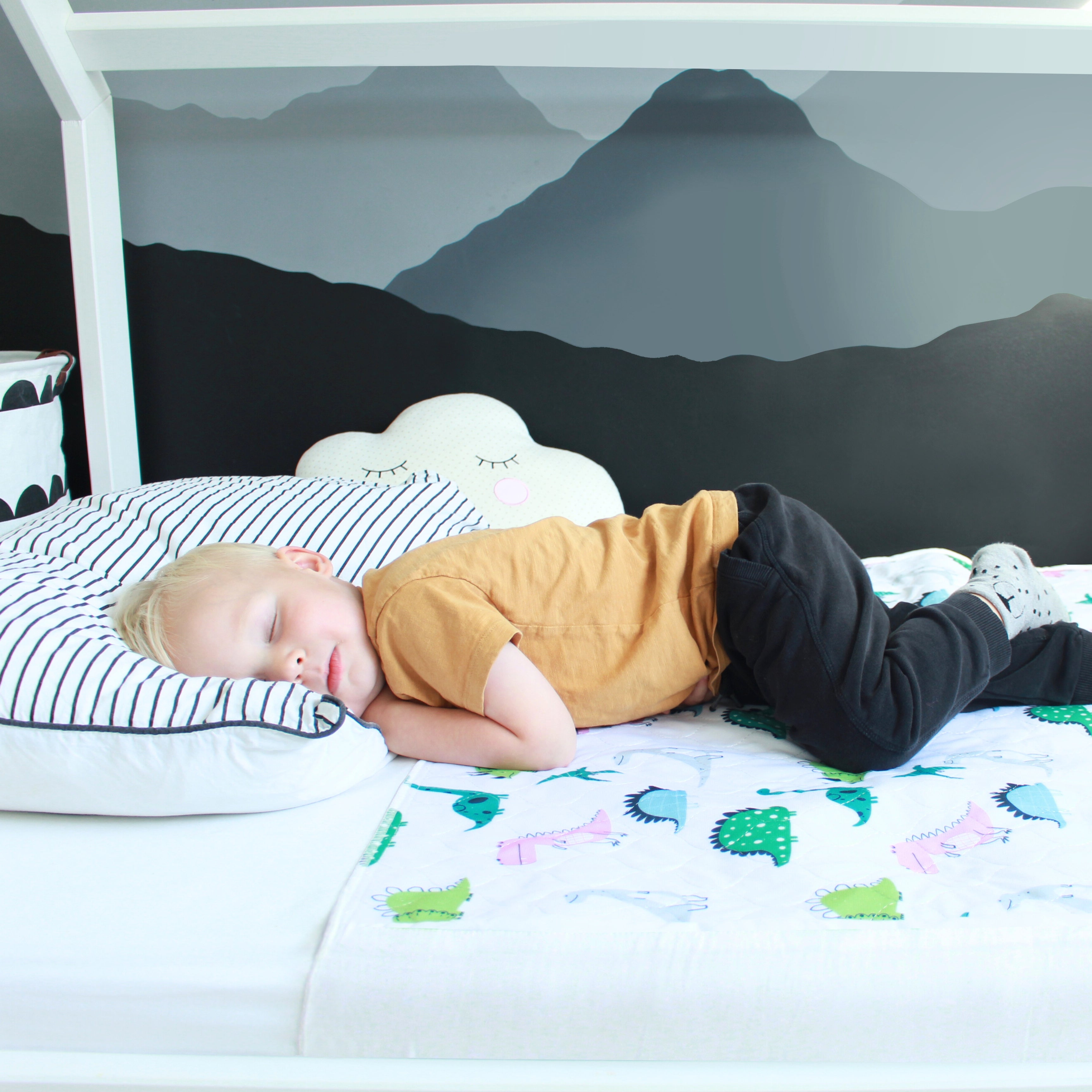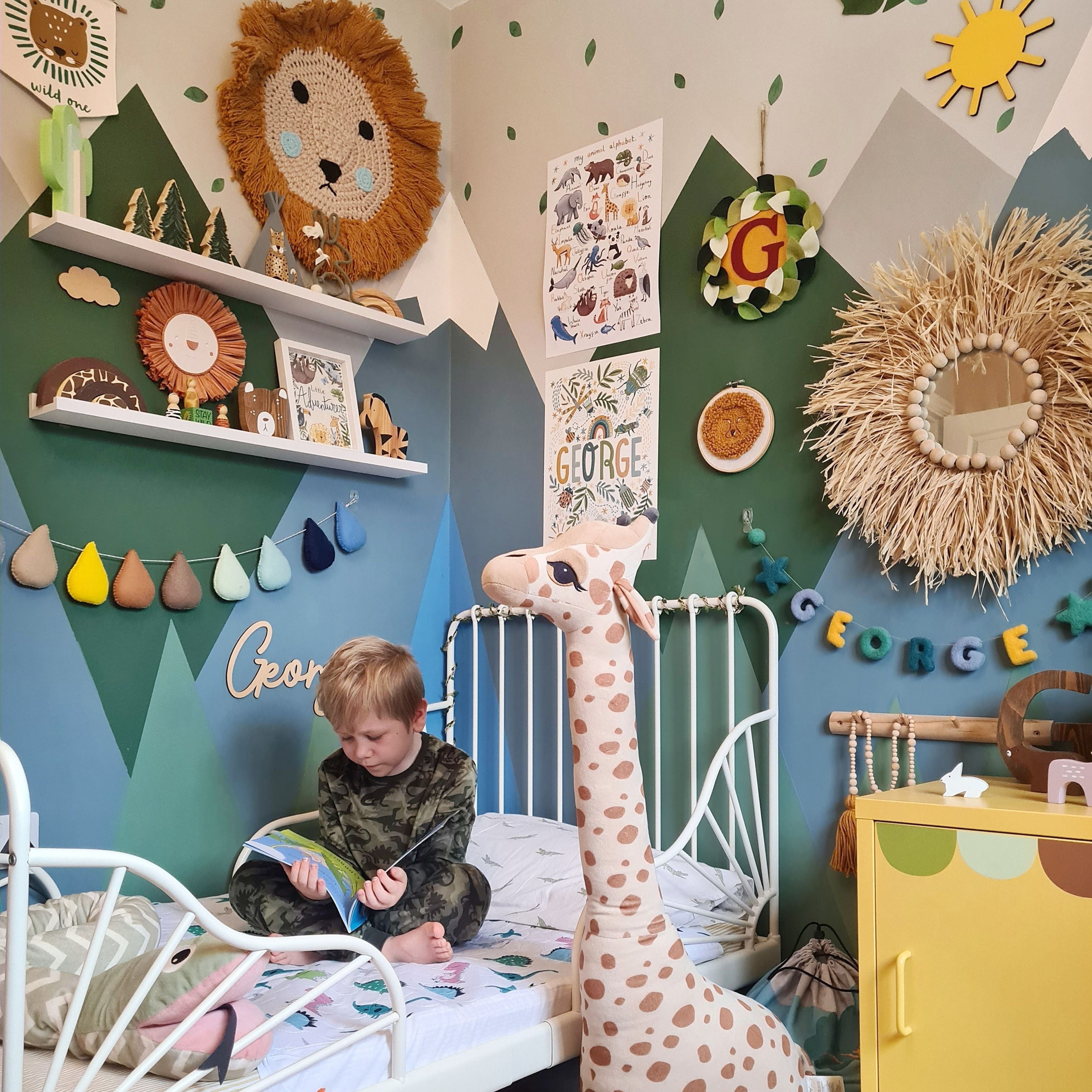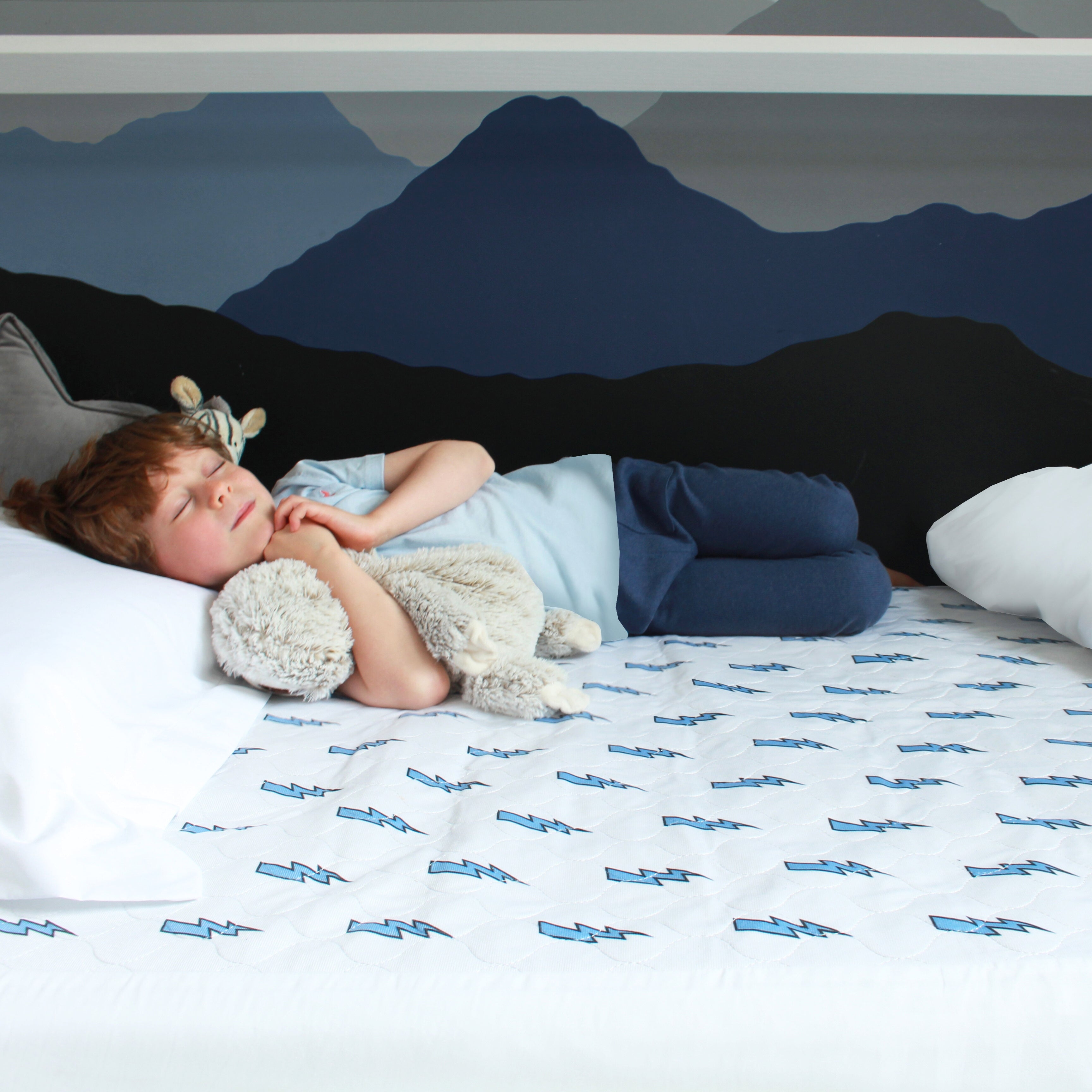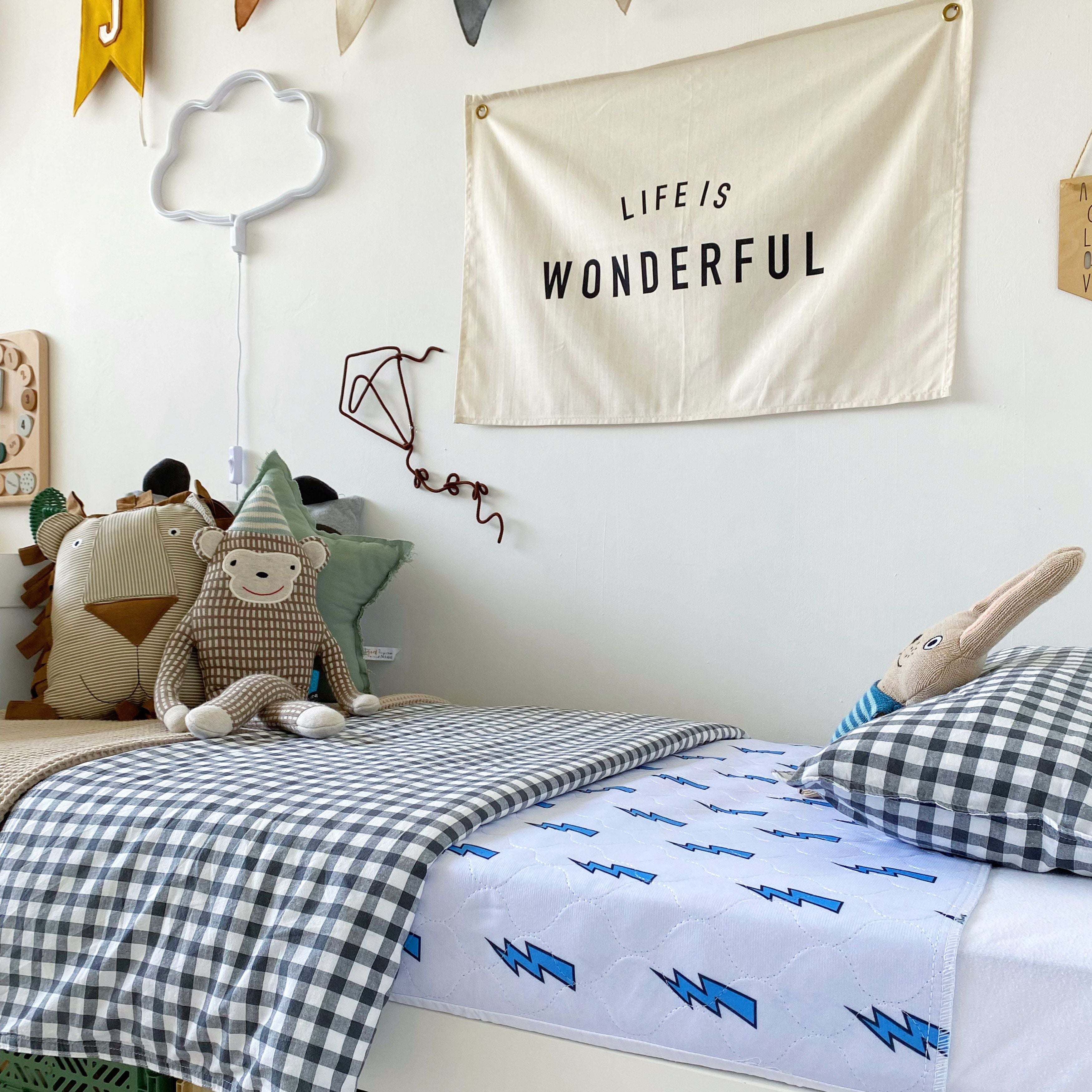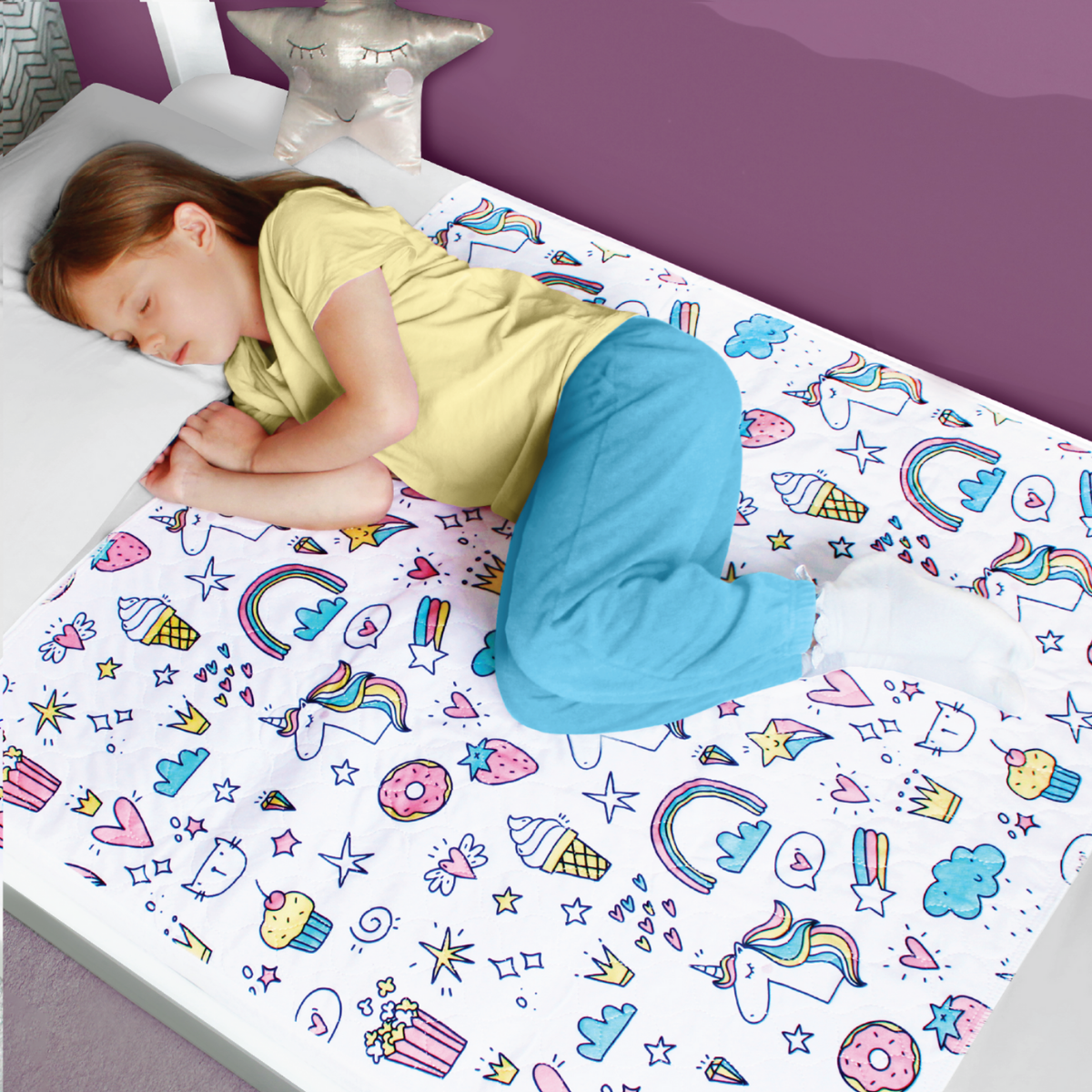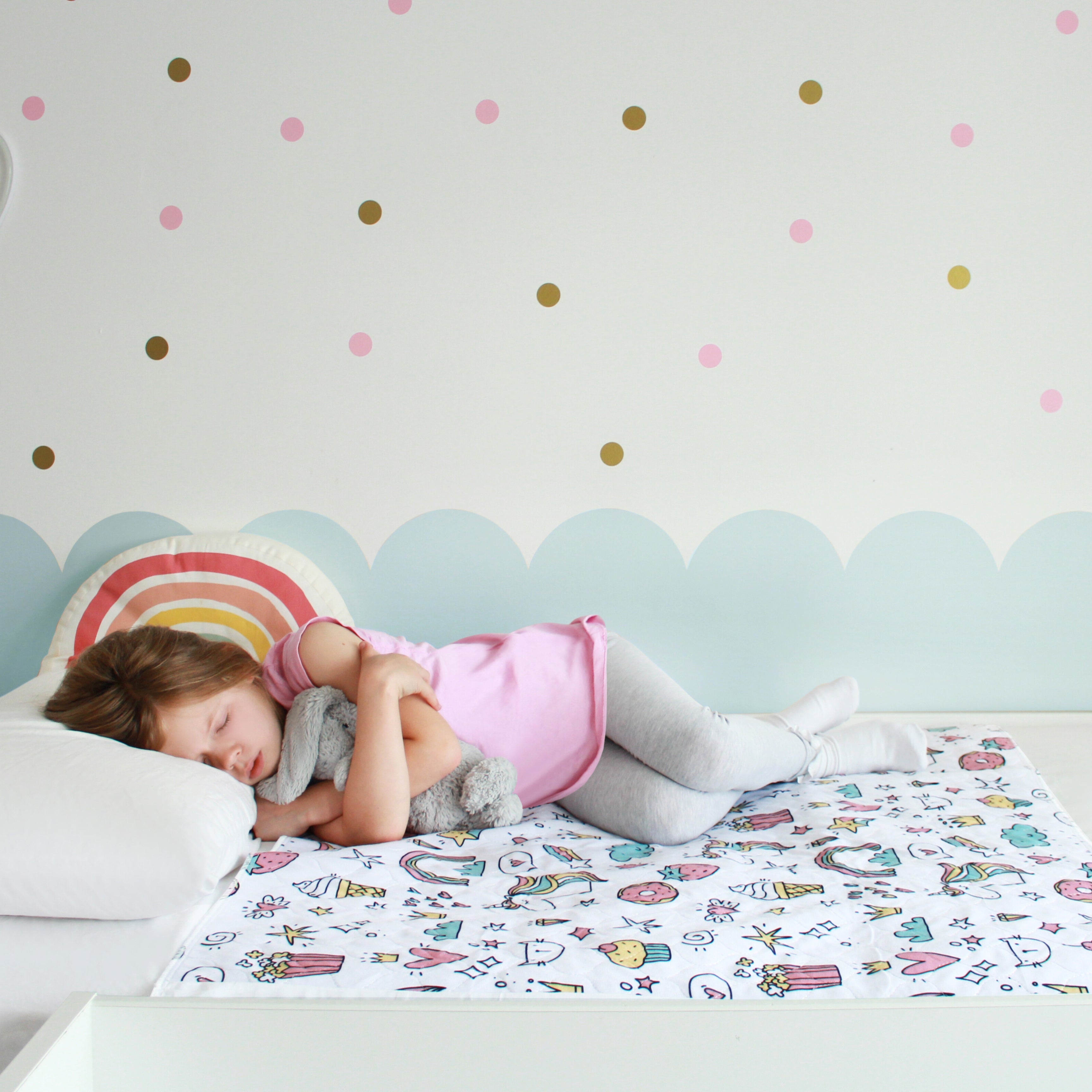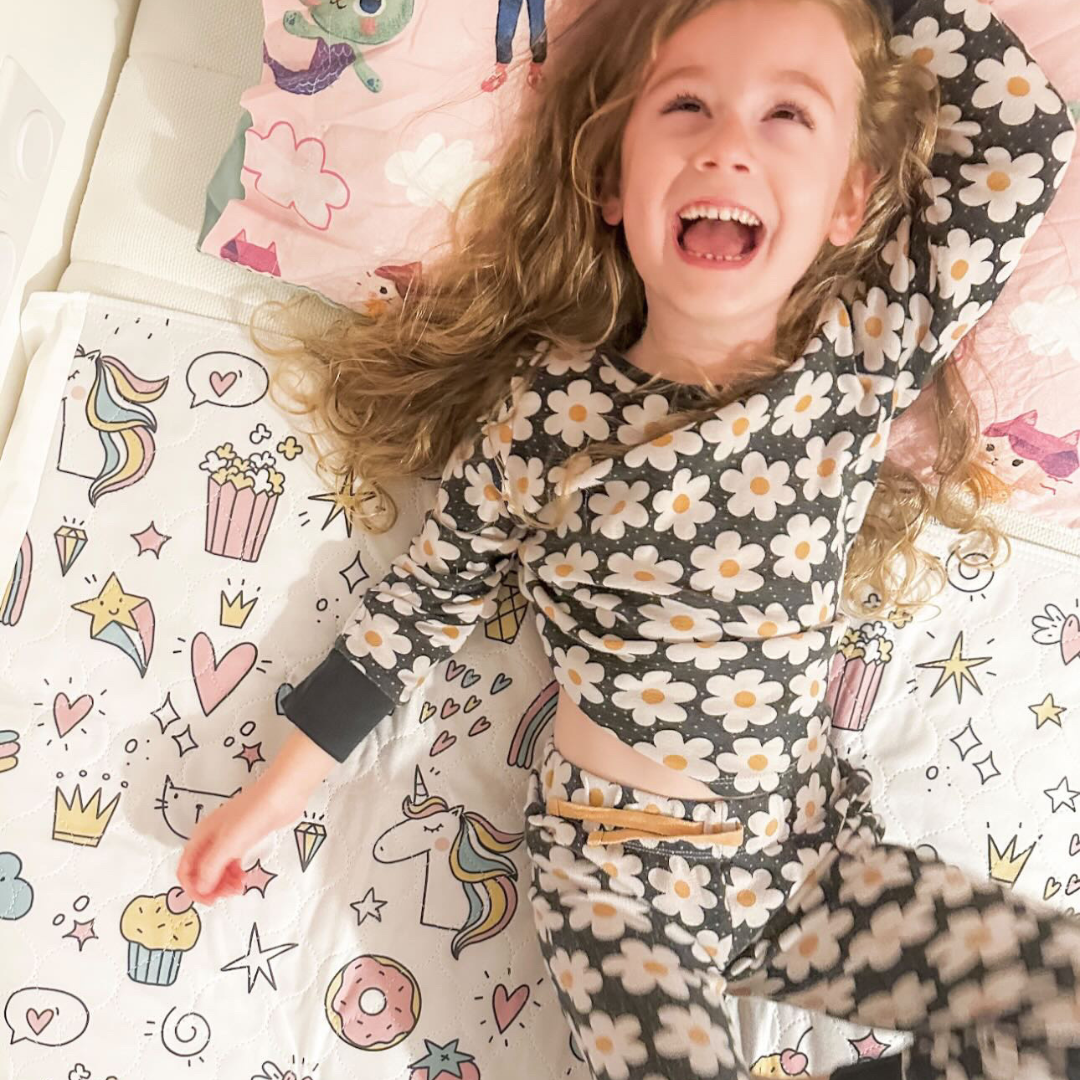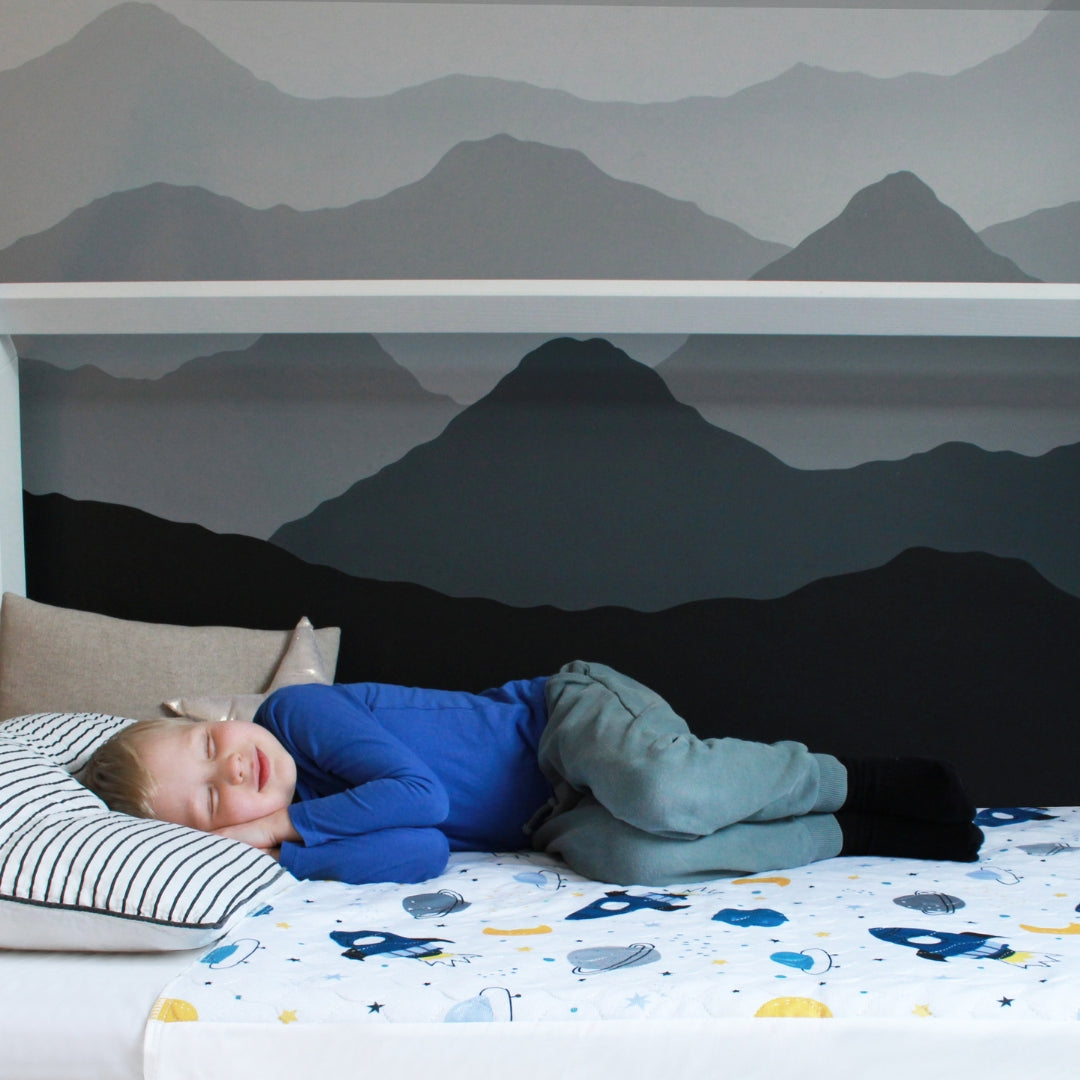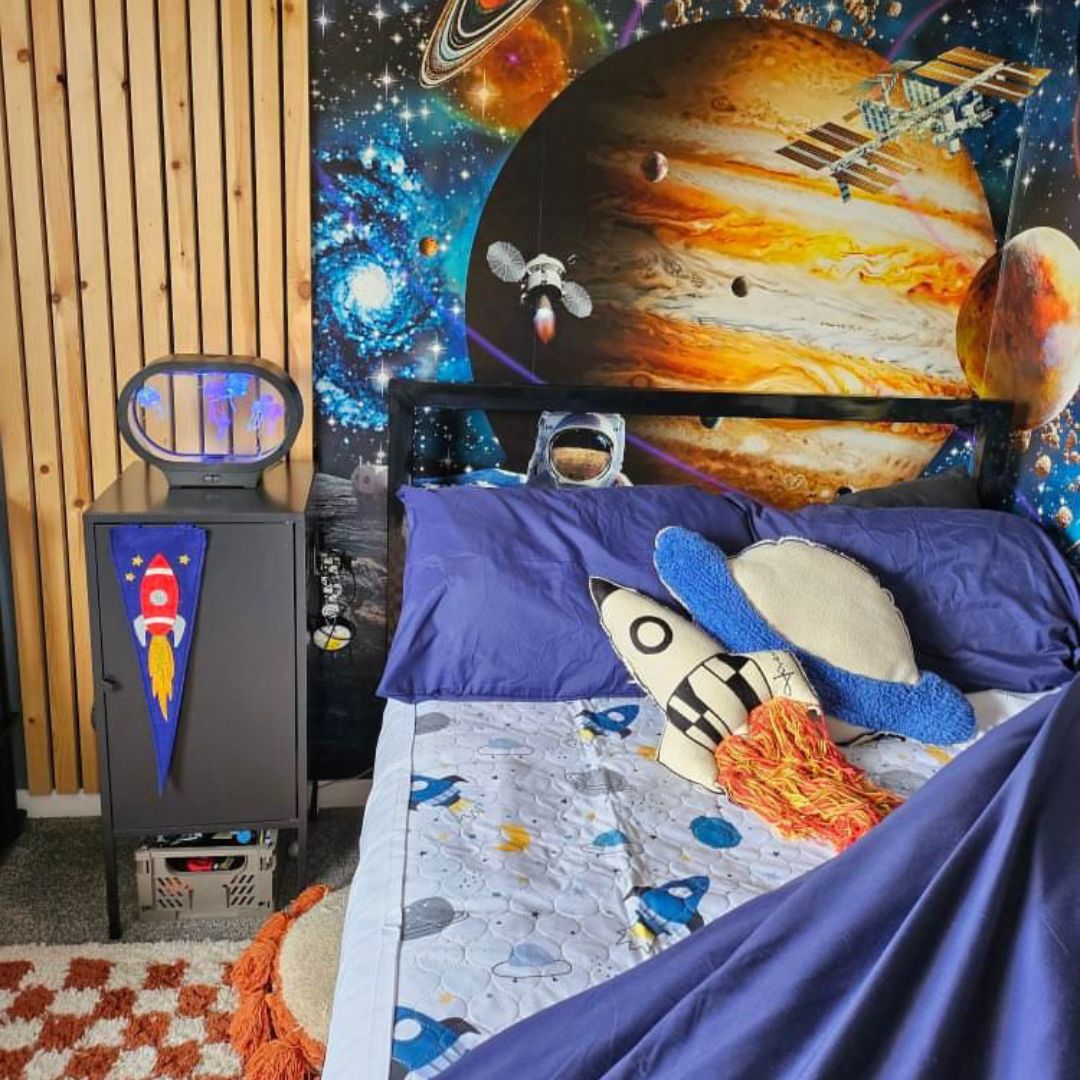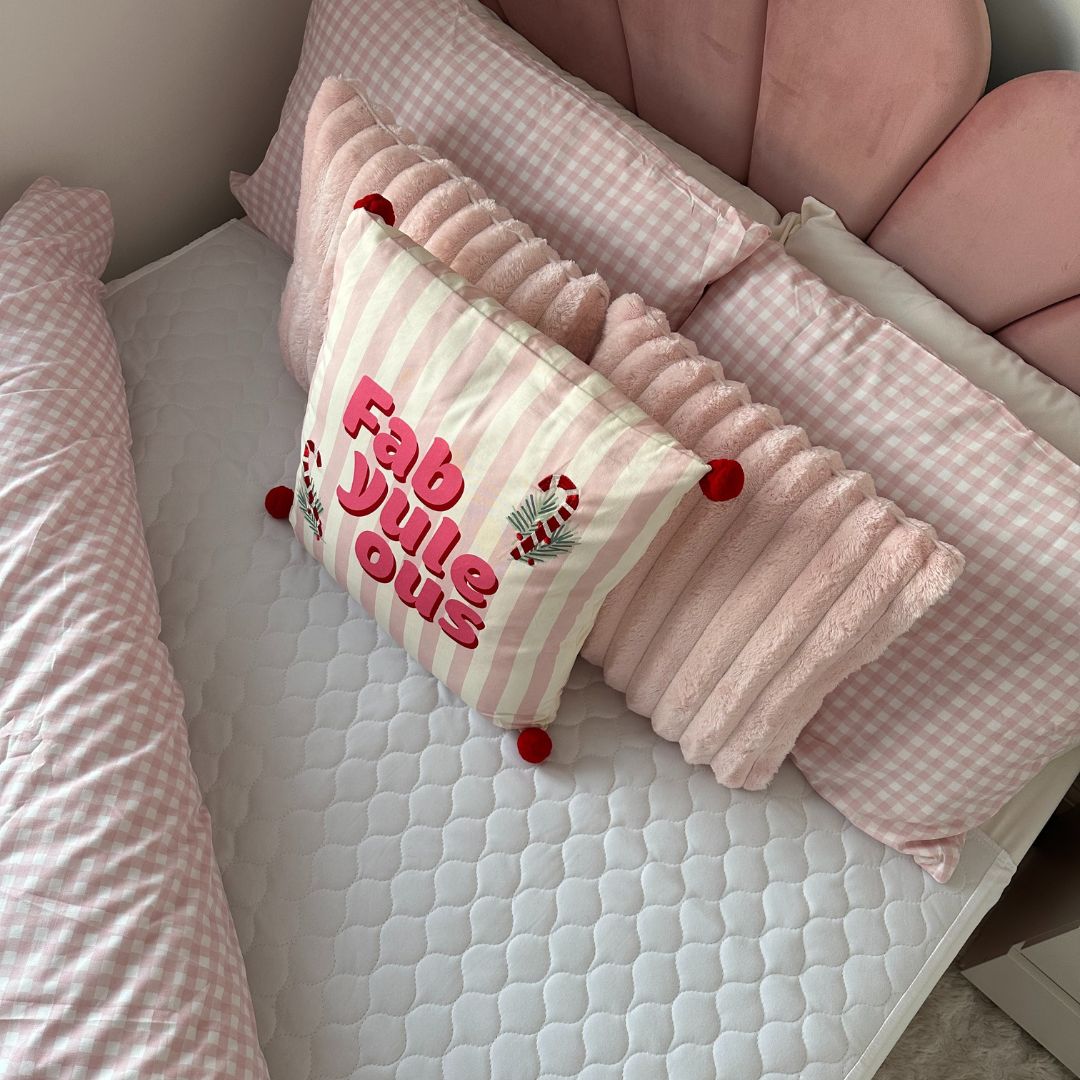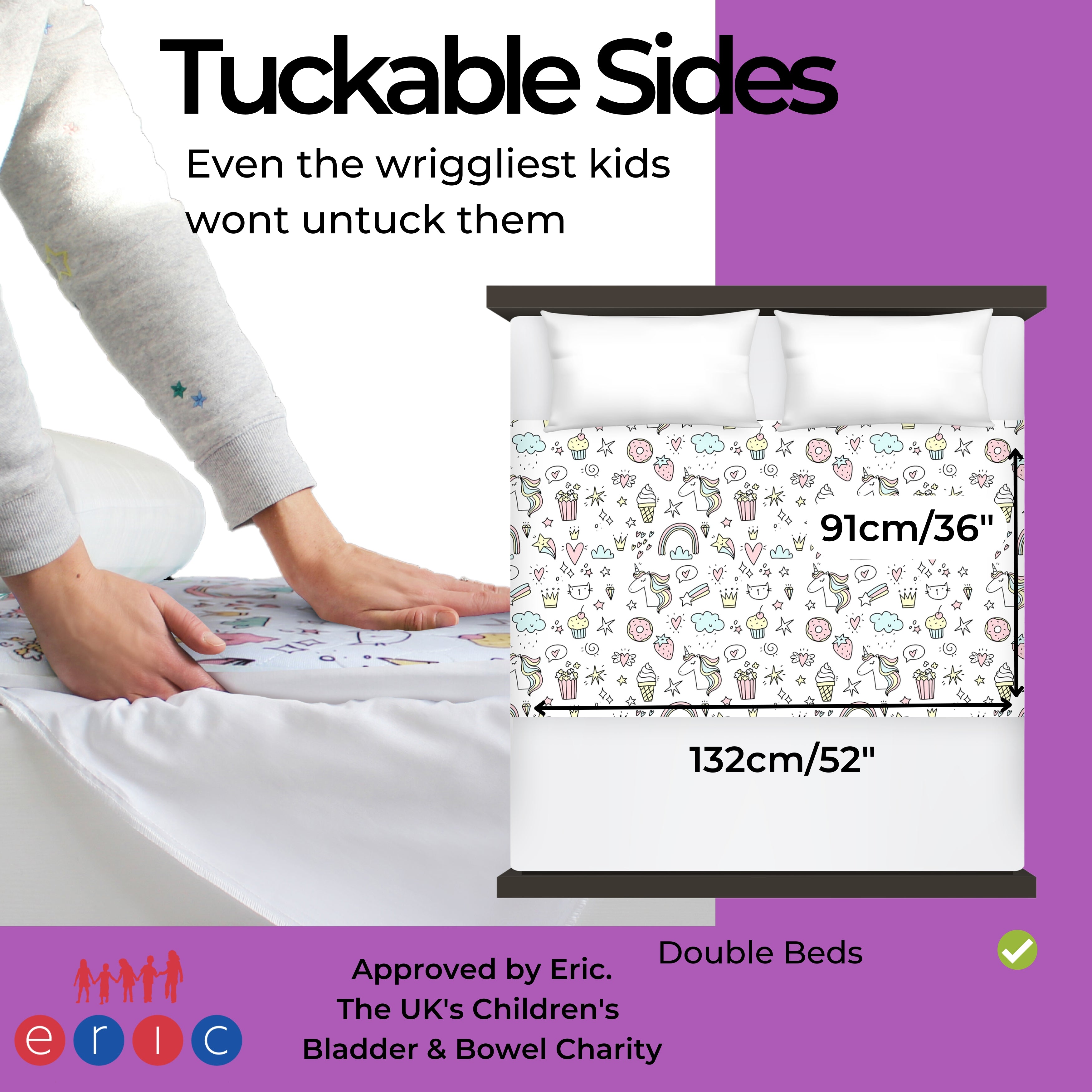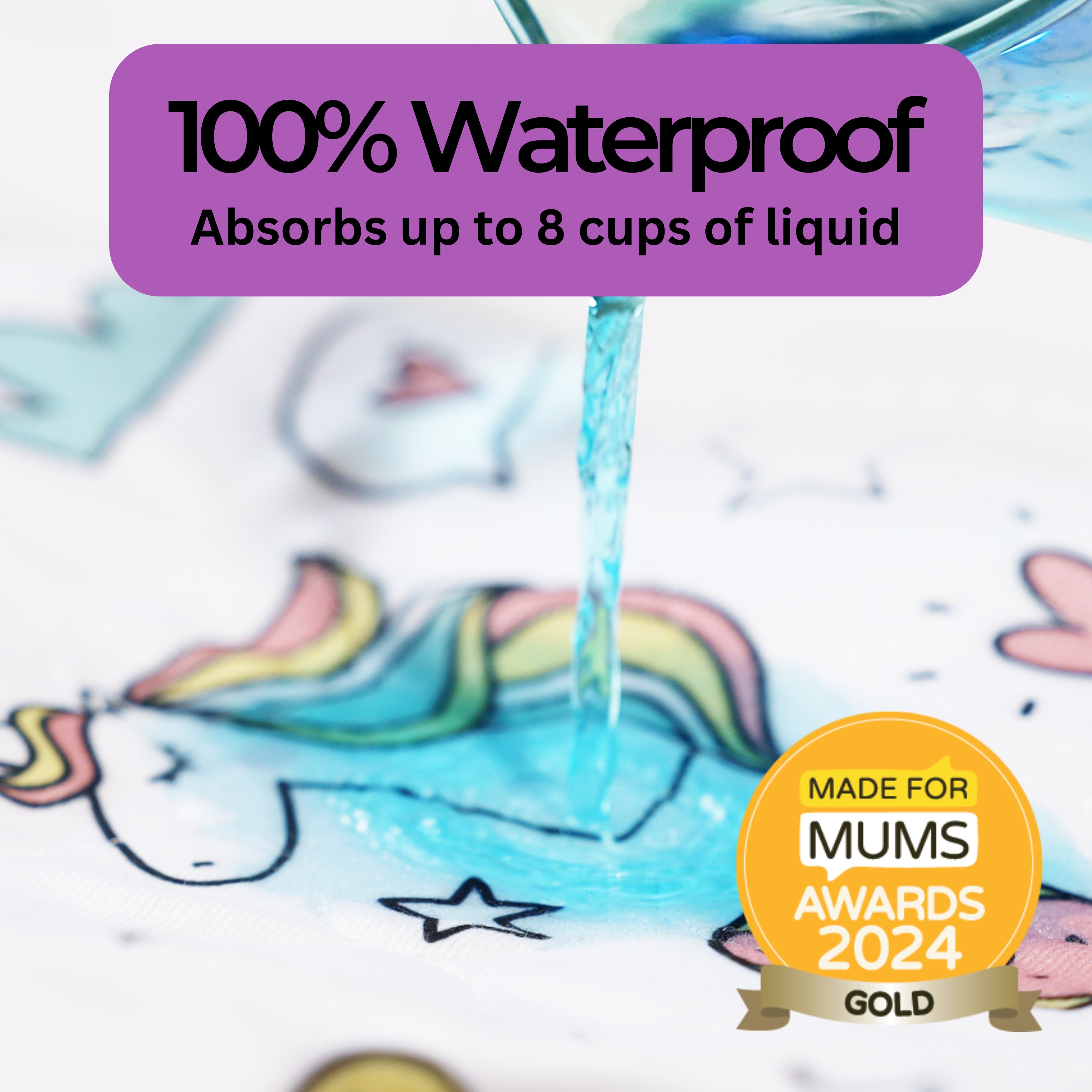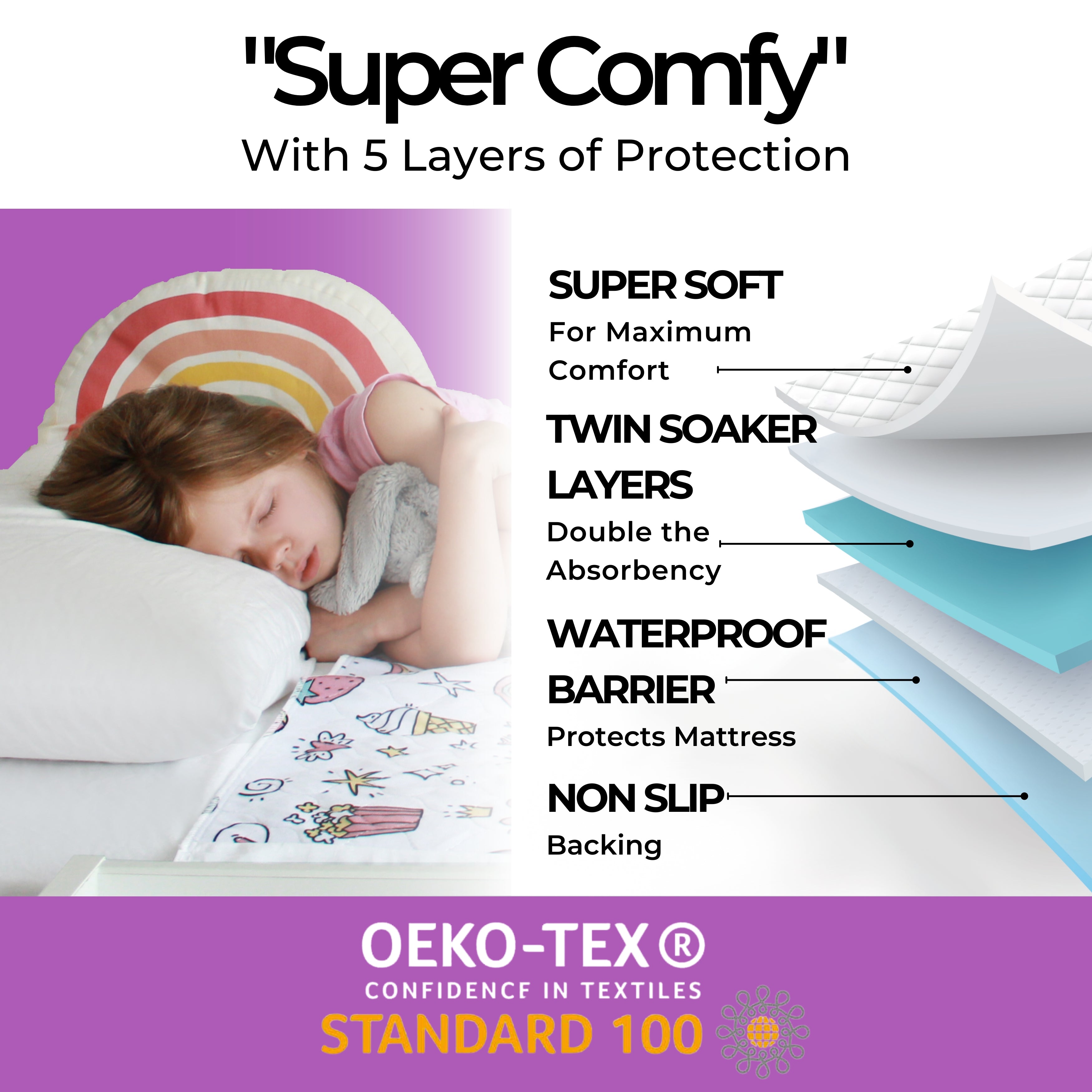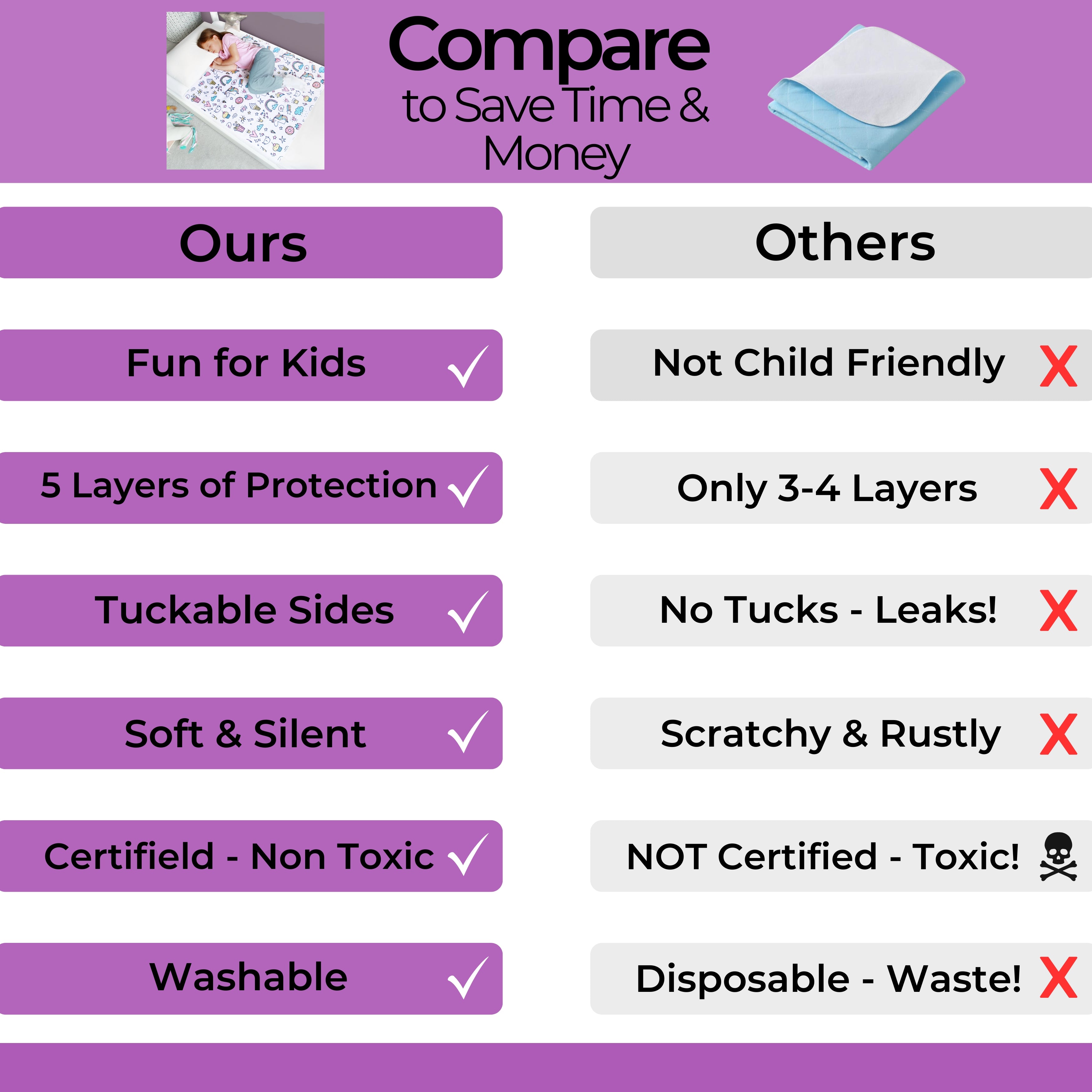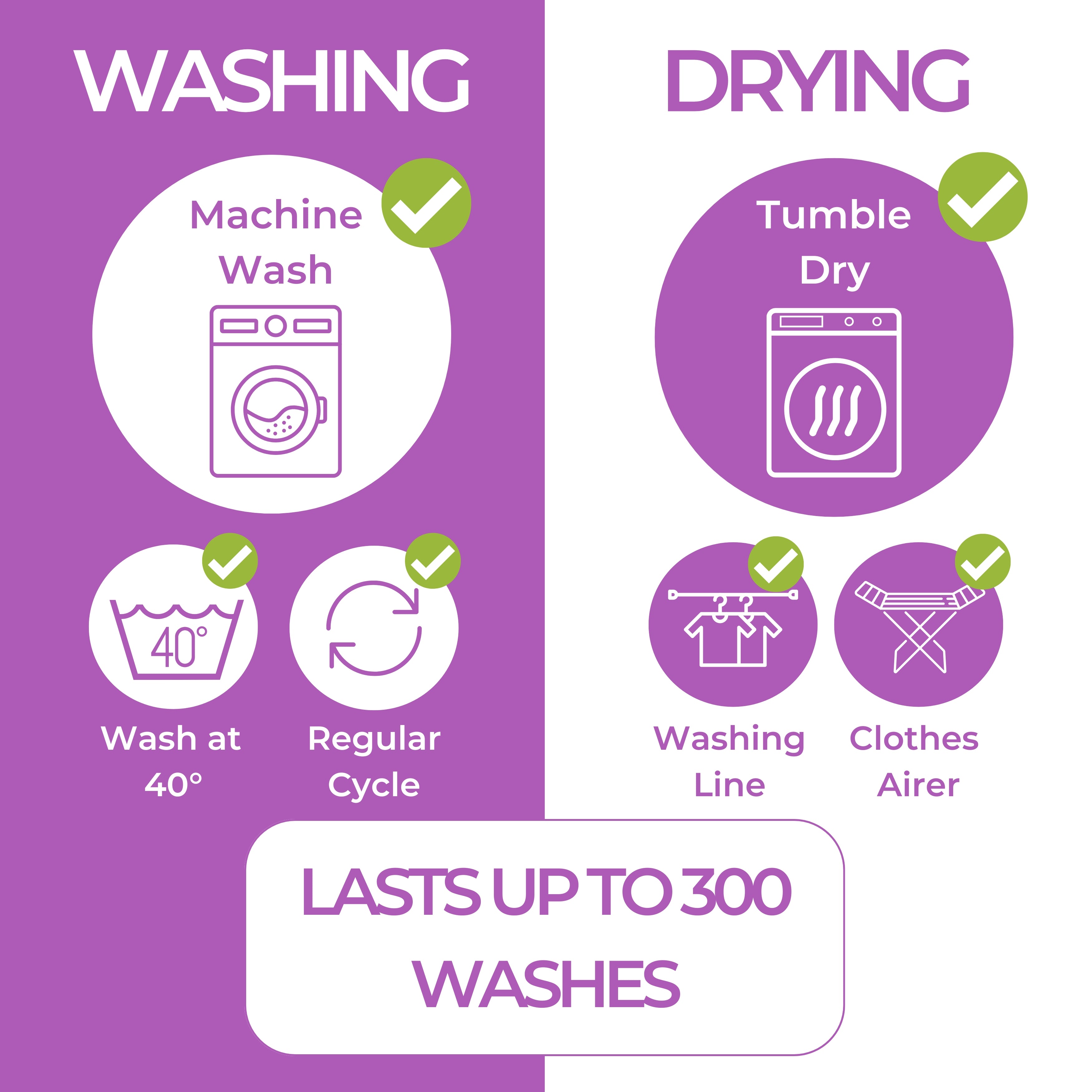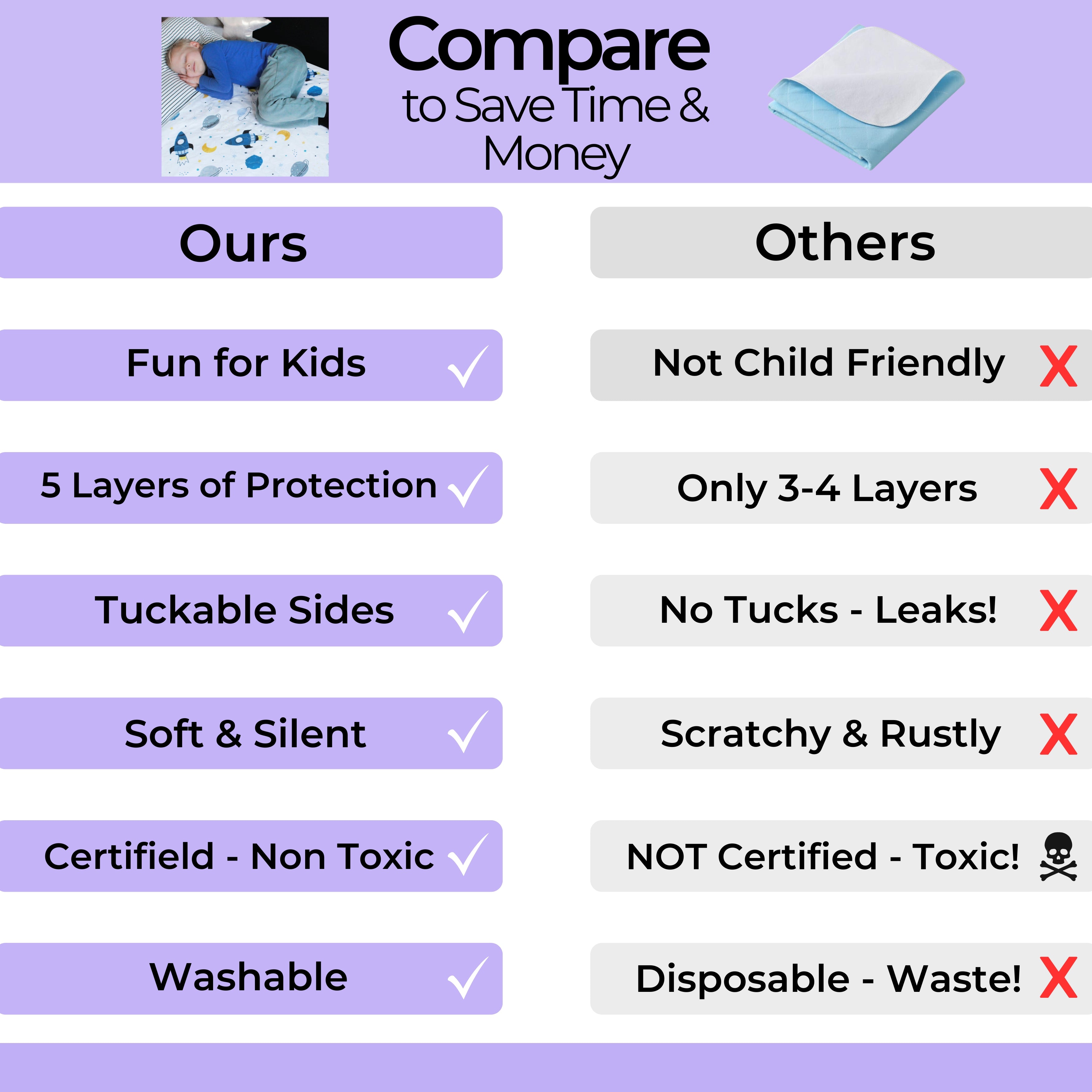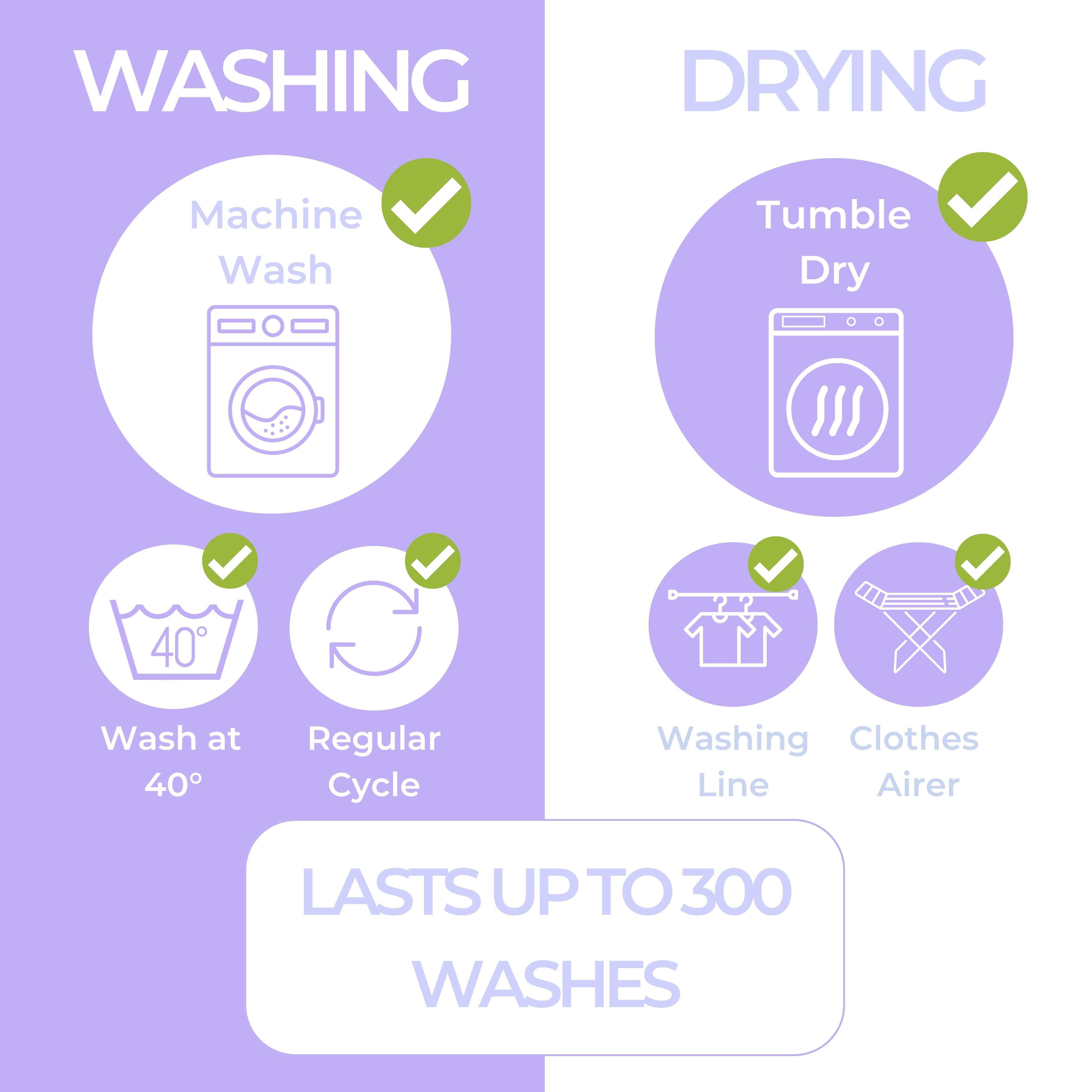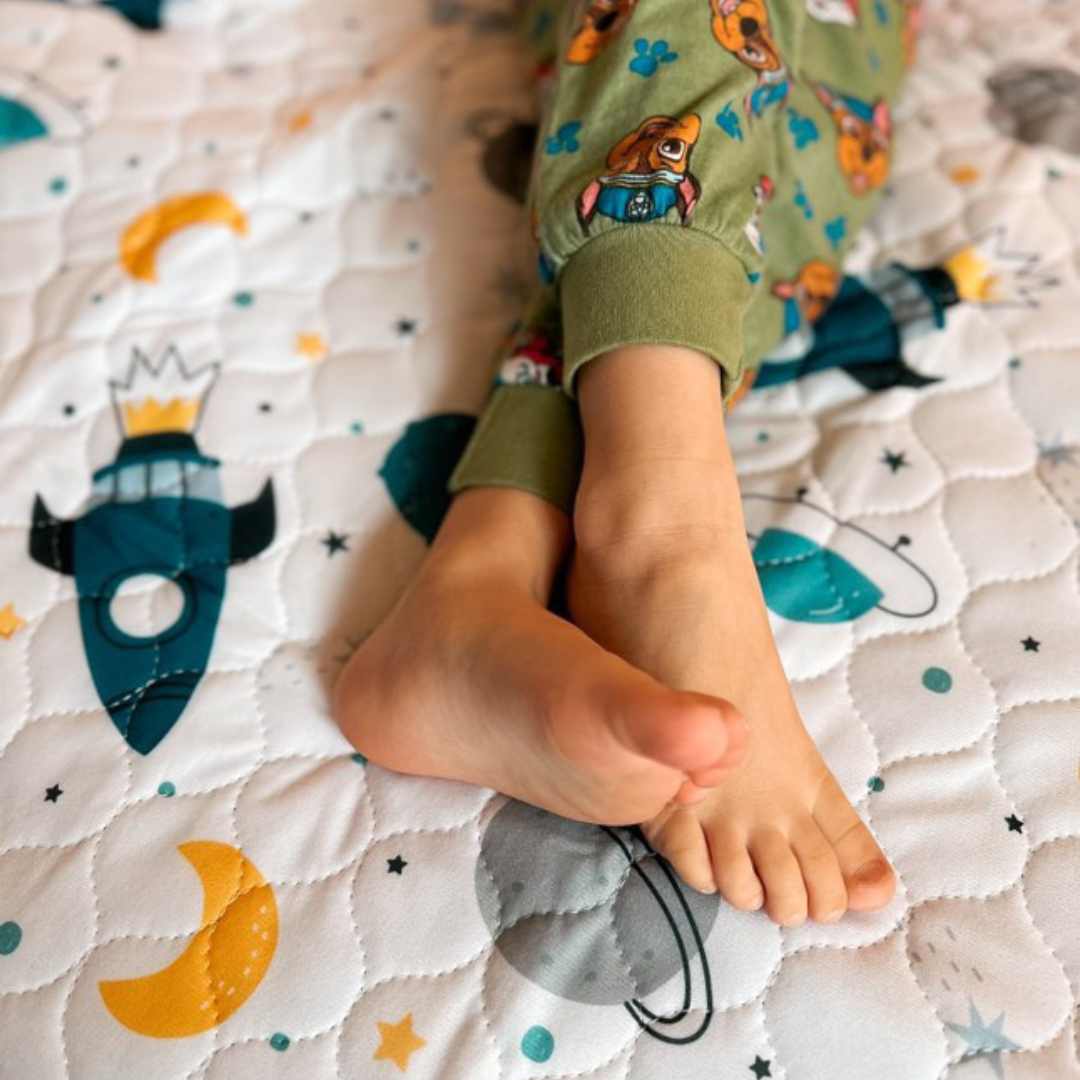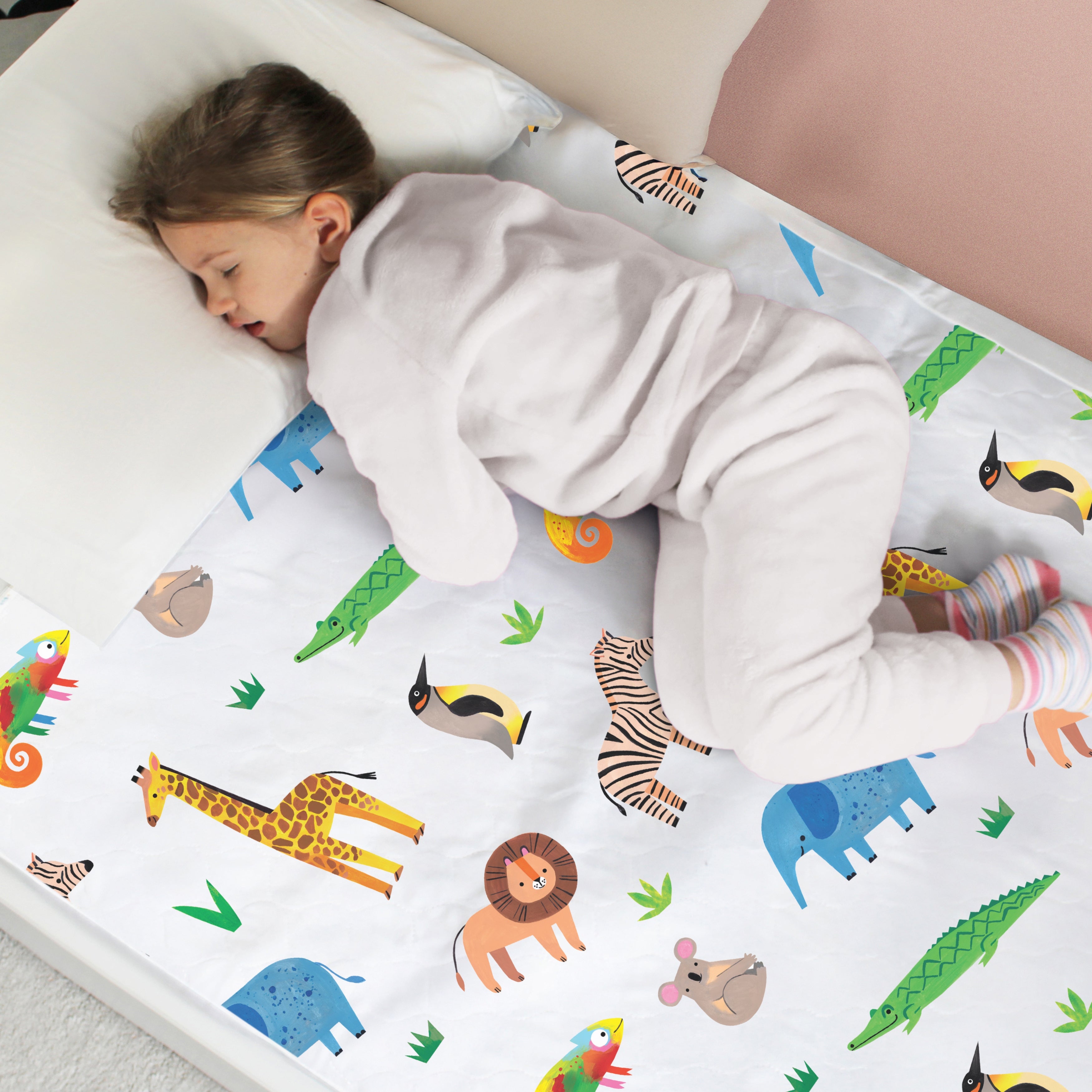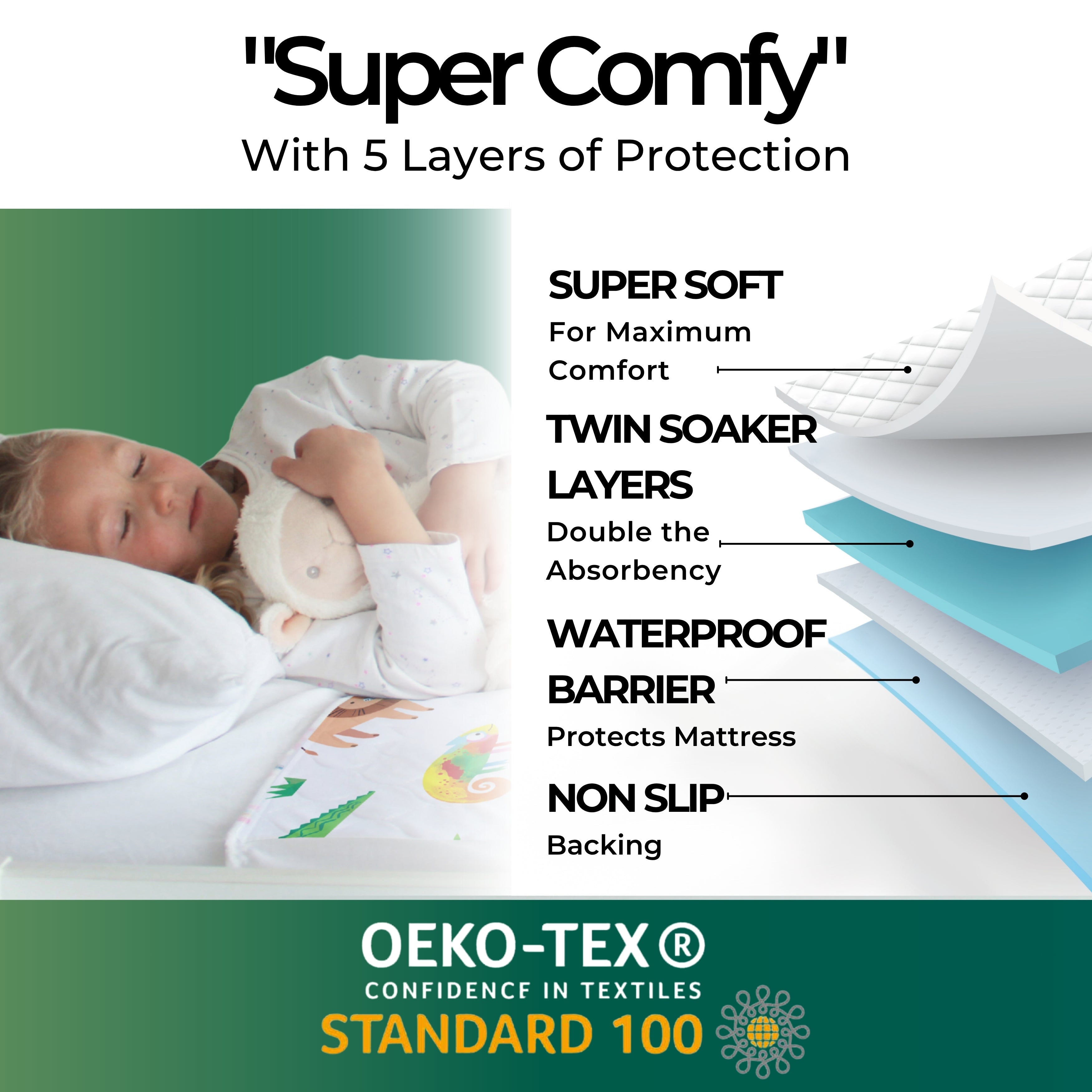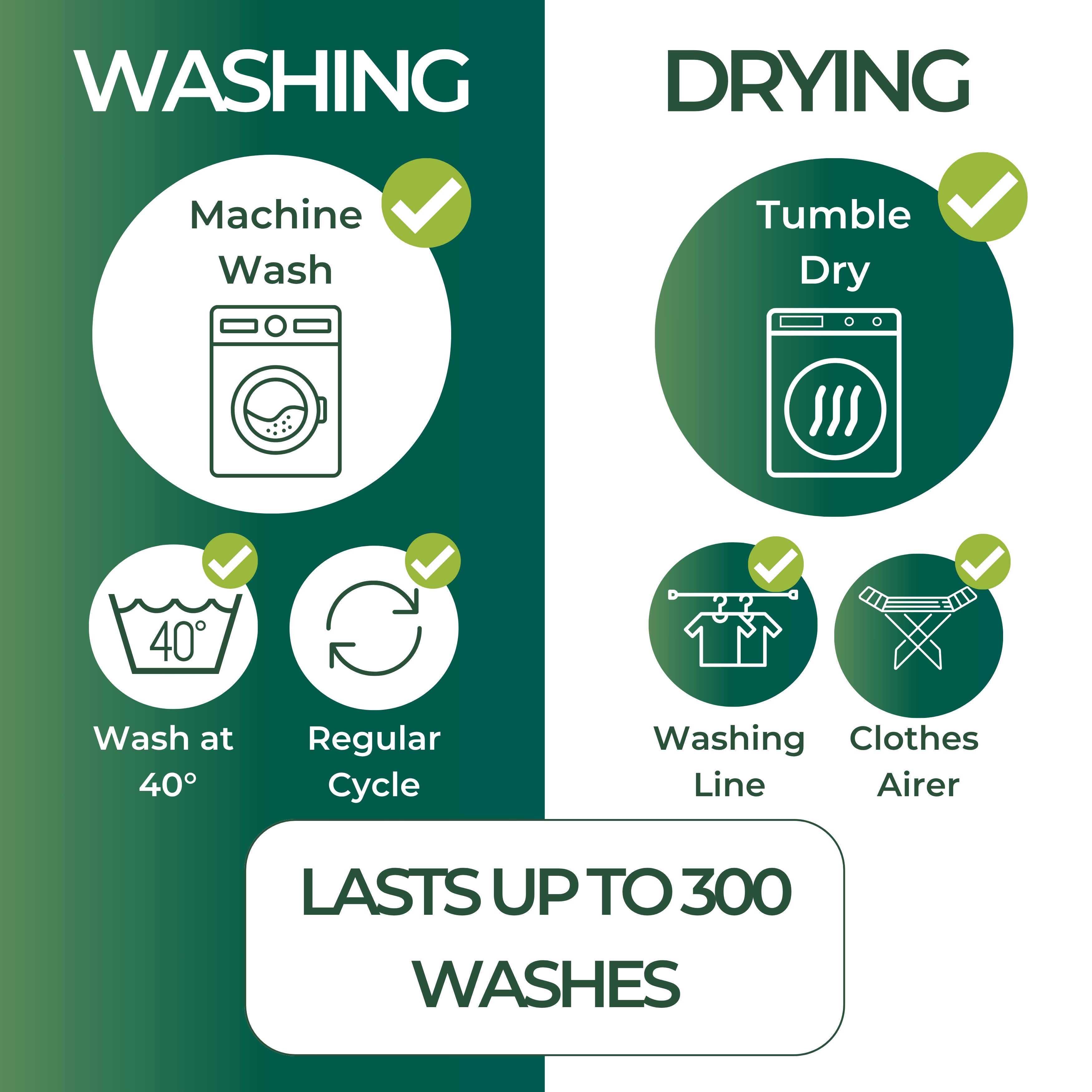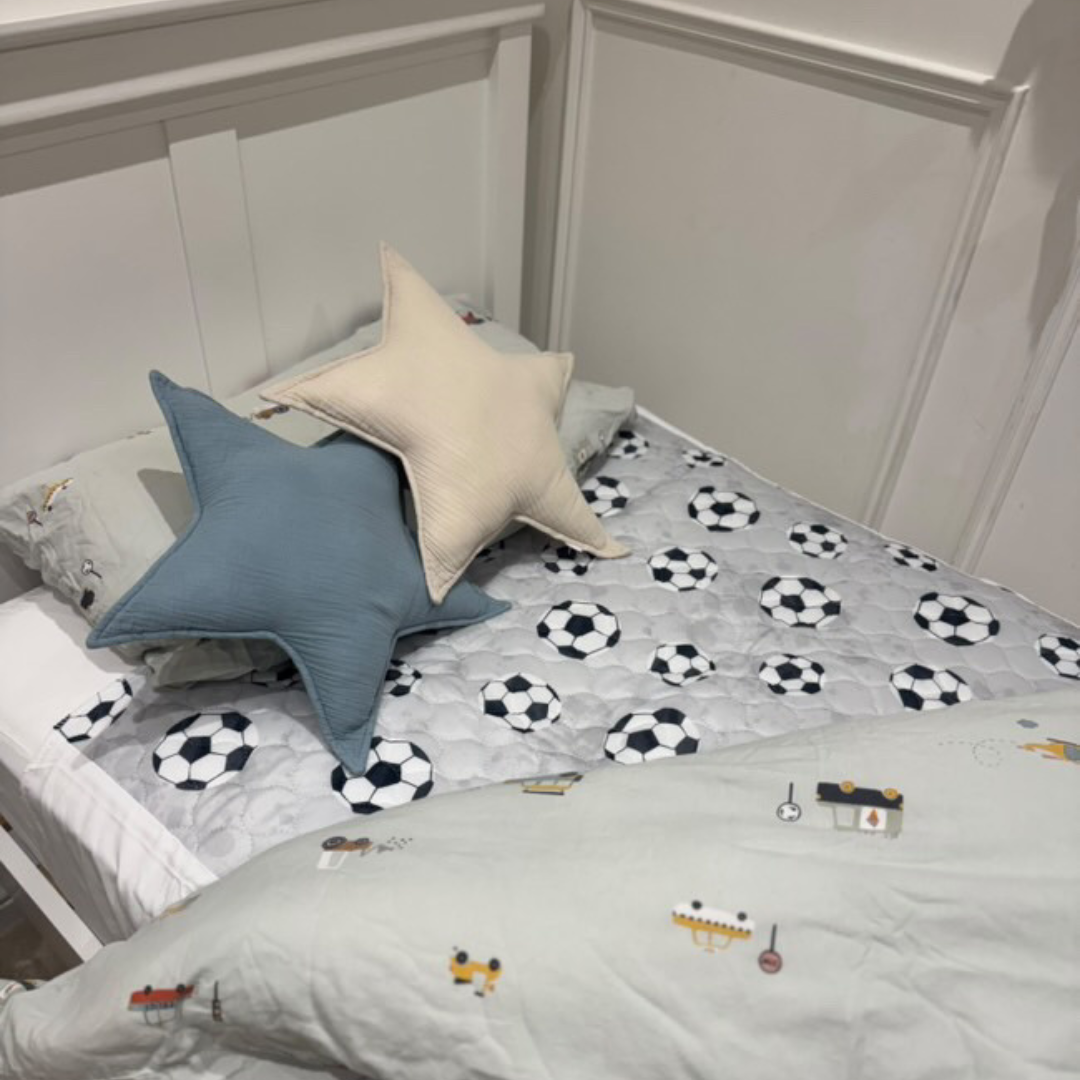As parents, we’re always looking for ways to help our children get a restful night’s sleep. This can mean creating a calm and predictable bedtime routine, making sure their bedroom is dark, cosy, and free from distractions, and encouraging habits that support healthy sleep patterns. In the UK, bedwetting affects an estimated 500,000 children aged 5 to 16. So, it’s understandable to be concerned if nighttime accidents seem to increase during certain periods of the year.
Many parents online and across social media are discussing the same question “Can melatonin cause bedwetting?” Here we’re going to explore what the research says, why it might be more noticeable in winter, and what you can do to help.
What Is Melatonin & How Does It Work?
Melatonin is a hormone our bodies naturally produce in response to darkness. It plays a key role in regulating the sleep-wake cycle, signalling when it’s time to wind down and rest. During winter, when days are shorter and evenings darker, the body produces more melatonin earlier in the evening. For some children, this natural increase can make them feel sleepier or more sluggish, and it may also influence how deeply they sleep.
Link Between Melatonin & Bedwetting
There are not many studies looking into this direct link between the hormone melatonin and bedwetting. However, there are various theories that may explain how these two things seem to be correlated:
Deeper Sleep
Melatonin promotes deeper, more restorative sleep. For some children, this might mean they sleep so deeply that their brain doesn’t register the signal from their bladder during the night. In other words, they simply don’t wake up in time.
Hormonal Interactions
Melatonin interacts with other hormones in the body including vasopressin, which helps regulate urine production at night. If melatonin disrupts this balance even slightly, it might contribute to more nighttime urination.
Individual Differences
Every child’s body and sleep rhythm are unique. Some parents notice bedwetting becomes more frequent in the darker months when natural melatonin levels rise, while others see no difference at all. According to Bladder & Bowel UK, 20% of five year olds wet the bed dropping to about 10% by age seven however, around 1% of adults still experience it, suggesting that for some, the issue can persist beyond childhood.
Why Winter Might Make Bedwetting Worse
Winter brings shorter days and darker evenings, leading to naturally higher melatonin levels. This can result in deeper, longer sleep, which may make it harder for some children to wake when their bladder is full. Other winter related changes, such as altered sleep routines, lower physical activity, or drinking less water, can also subtly influence nighttime bladder control.
What You Can Do as a Parent
One study found that children who continue to wet the bed are more likely to experience lower self-esteem or behavioural issues, so early action and reassurance are important.
Here are some strategies for parents:
-
Encourage regular toilet trips before bed, and limit drinks an hour before bedtime.
-
Maintain a calm bedtime routine warmth, comfort, and reassurance go a long way.
-
Use waterproof bedding or a mattress protector to take the stress out of nighttime accidents.
-
Support your child with patience and understanding rather than punishment or frustration.

We understand that bedwetting isn’t just a “phase”; it’s a common challenge that affects both children and their families. Soft, absorbent, waterproof bedding can make nights easier, ensuring your child sleeps comfortably and confidently, even on the deepest winter nights.
Natural melatonin levels don't directly “cause” bedwetting for most children, but by deepening sleep or subtly influencing hormonal rhythms, it can sometimes play a role especially in the darker, melatonin-rich winter months. If your child’s nighttime accidents increase this season, know that it’s not your fault, it’s usually temporary, and with patience, reassurance, and the right support, you can get through it together.

